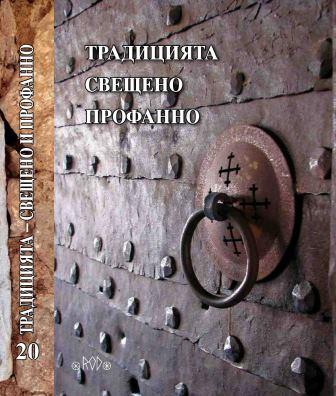ВИНАТА КАТО КУЛТУРНО НАСЛЕДСТВО. СЪВРЕМЕННИ МЕМОРИАЛНИ ПРАКТИКИ В ГЕРМАНИЯ ЧАСТ ПЪРВА
THE FAULT AS A CULTURAL HERITAGE. CONTEMPORARY MEMORIAL PRACTICES IN GERMANY PART ONE
Author(s): Dessislava TiholovaSubject(s): Anthropology, Social Sciences, Customs / Folklore, Sociology, Cultural Anthropology / Ethnology, Applied Sociology
Published by: Асоциация за антропология, етнология и фолклористика ОНГЬЛ
Keywords: memory; guilt; identity; heritage; monument; war memorial;
Summary/Abstract: The following text presents the vision of a bystander unbiased observer on the matter of assimilation of guilt and its transformation into both-an element of national identity and a resource for the process of cultural heritage formation. as a form of ‘cultural production’, this process aims to update of old values in the context of new understanding, as well as expanding the field of scientific research into the field of individual and community groups, in order to discover new cultural values and turn them into metacultural artifacts. Observations on this subject cover various forms of objectification of the memory – war memorials, monuments, memorial plaques, tombstones, residential property, and various forms of space - produced in the process of “overcoming guilt” and “internationalization of memory”. Their increasing number, the emergence of dynamic counter-monuments at the end of the 19th century as a form of protest against “hard set memory”, as well as the search for new visions are indicative of the deepening crisis of memory and guilt rather than the acceptance and outgrowing the current complex of guilt. As an indisputable product of internal and external factors of influence, the memory of guilt and the need to be continuously and unconditionally recognized and accepted continues to be active in the German mentality to date. The many and increasingly modern monumental and memorial forms reflect the unquestionable attempts of German society to rehabilitate both the victims and itself in the international memory, which in turn leads to serious changes in the construction of cultural and social identity.
Journal: Годишник на Асоциация за антропология, етнология и фолклористика »Онгъл«
- Issue Year: 2021
- Issue No: 20
- Page Range: 429-444
- Page Count: 16
- Language: Bulgarian
- Content File-PDF

